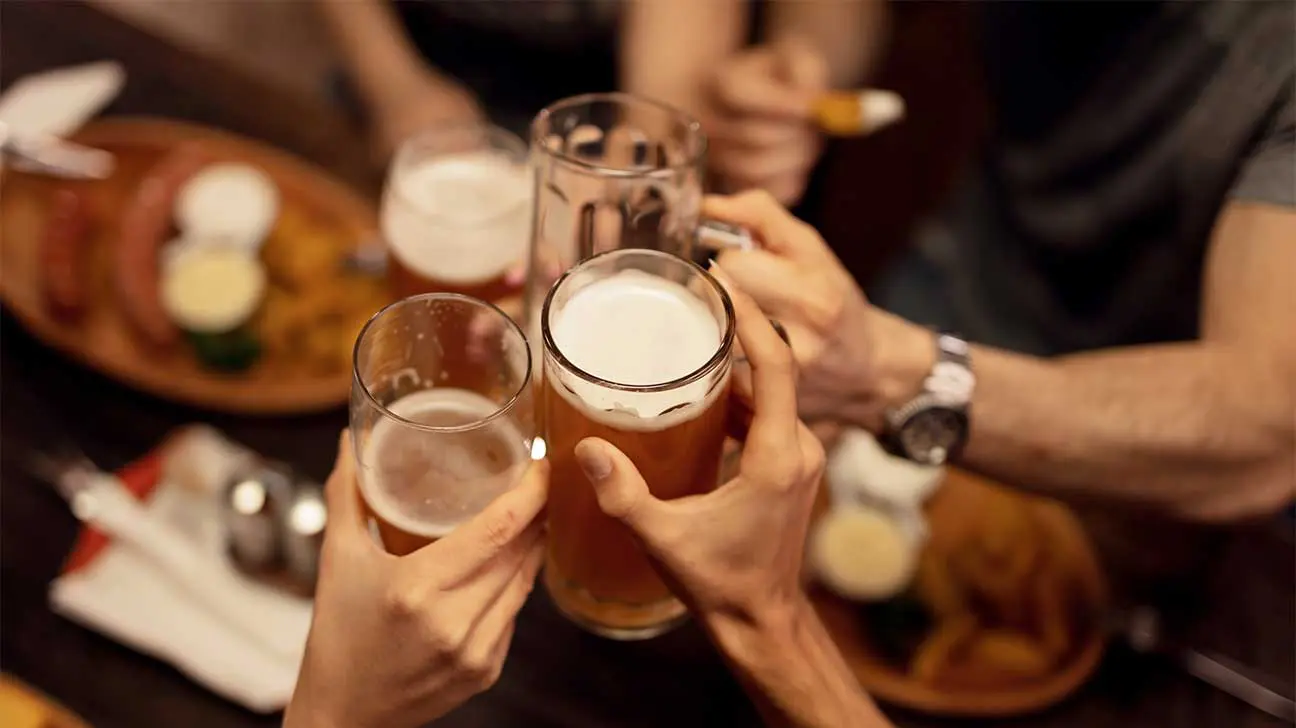
California sober is a colloquial term that is increasingly being used to describe a form of partial sobriety. This contrasts with the concept of full sobriety, or abstinence from all drugs.
Sobriety is a non-medical term that is used to describe abstinence from all drugs, including alcohol. For some, however, the definition of sobriety varies in addiction recovery spaces.
What Does California Sober Mean?
California sober is a term used to describe sobriety from all drugs, with the exception of marijuana (cannabis) and sometimes psychedelics.
There is no clear definition for California sober or sobriety within medical literature.
The former is most often used by people formerly addicted to drugs or alcohol, or adults who are trying to cut down on their drinking or drug use.
Where Does The Term Come From?
The origins of the term ‘California sober’ are difficult to trace.
One of the first notable mentions of it can be traced back to a 2019 VICE article, where it was described as abstaining from all substances except marijuana and psychedelics.
One definition on the website Urban Dictionary, first posted in 2016, describes ‘California sober’ as abstaining from all drugs except marijuana and alcohol.
Why The Term California Sober Is Becoming Popular
One of the primary reasons this term is gaining greater attention is due to its use by celebrities, such as Demi Lovato.
Demi Lovato, a 28-year-old musical artist and actress, has been open about her struggles with an eating disorder, trauma, and addiction for years.
In a recent documentary, titled Dancing with the Devil, Lovato used the term to describe how she currently identifies in her recovery, which for her allows drinking in moderation and the use of marijuana.
Lovato has stressed that this is a treatment plan she coordinated with her recovery care manager and has not recommended others adopt her plan without speaking to their own treatment team.
Why Some People Identify With Partial Sobriety
Although full abstinence from drugs and alcohol is often a goal within substance abuse treatment, not everyone formerly addicted decides to remain fully sober for the rest of their lives.
For some, full abstinence feels overly restrictive. For others, it is necessary due to an inability to control drug or alcohol use in moderation—the primary sign of a substance use disorder.
Recovery, and what that looks like for someone, is a personal journey that can best be explored with the guidance of medical and behavioral health treatment professionals.
Is It Possible To Be California Sober In Addiction Recovery?
The answer to this isn’t simple or one that can be universally applied. Full sobriety is encouraged by many addiction professionals for people who have been formerly addicted to drugs or alcohol.
However, not all addiction professionals believe full sobriety from all substances is required to recover from addiction. This can vary according to the needs of each person in recovery.
What Addiction Experts Say
Not all experts agree on whether recovery from addiction is possible with only partial versus full abstinence from substances.
Dr. Brian Hurley, director-at-large of the American Association on Addiction Medicine (ASAM), recently told TODAY News that the goal for all of his patients is full remission.
He defines this as no longer using substances in a way that is compulsive or causing harmful consequences.
According to Hurley, for most that means complete abstinence, but not for all. For some, remission may involve being abstinent from most, but not all substances.
Other experts stress that adopting a ‘California sober’ approach could negatively affect a person’s recovery.
Allowing for the use of some but not all substances carries a risk of relapsing on a person’s drug of choice, or developing an addiction to another drug.
Finding An Addiction Recovery Plan That’s Right For You
Addiction recovery isn’t a one-size-fits-all process. Recovery is a lifelong journey that requires patience, self-compassion, and is best navigated with the guidance of treatment professionals.
Call our addiction treatment specialists today to schedule an assessment to find a treatment plan that’s right for you.
Addiction Resource aims to provide only the most current, accurate information in regards to addiction and addiction treatment, which means we only reference the most credible sources available.
These include peer-reviewed journals, government entities and academic institutions, and leaders in addiction healthcare and advocacy. Learn more about how we safeguard our content by viewing our editorial policy.
- American Psychological Association (APA)—Speaking of Psychology: Sober curious
https://www.apa.org/research/action/speaking-of-psychology/sober-curious?utm_source=facebook&utm_medium=social&utm_campaign=apa-podcast-sop&utm_content=ep101-sober-curious - TODAY—What is California Sober? Demi Lovato’s recovery plan explained
https://www.today.com/health/what-california-sober-demi-lovato-s-recovery-plan-explained-t213730 - Urban Dictionary—California Sober
https://www.urbandictionary.com/define.php?term=California%20Sober - U.S. National Institute on Drug Abuse (NIDA)—Recovery
https://www.drugabuse.gov/drug-topics/recovery - Vice—What Does ‘California Sober’ Mean? On Quitting Drugs Except for Weed and Psychedelics
https://www.vice.com/en/article/a3xvga/california-sober-quitting-drugs-alcohol-weed - Yahoo—People Are Going ‘California Sober’ — But What Does That Even Mean?
https://www.yahoo.com/now/people-going-california-sober-does-090056525.html


